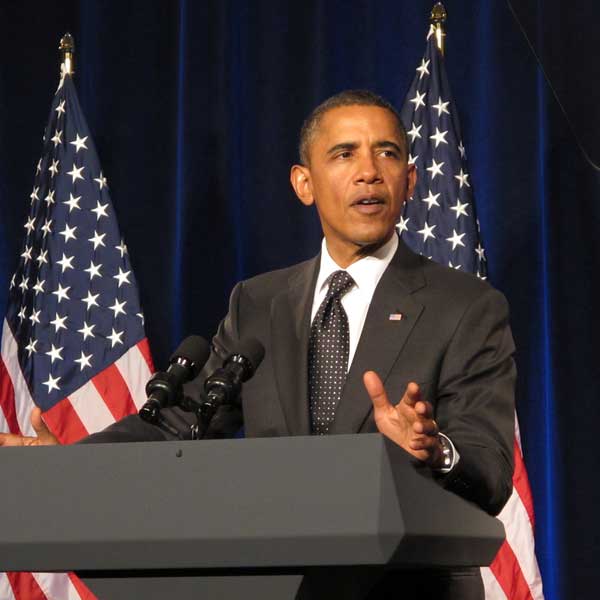Former President Barack Obama broke his typical silence on Thursday, August 28, 2025, to issue a strong critique of President Donald Trump’s deployment of military forces in U.S. cities. This marks Obama’s most pointed criticism of Trump since leaving office.
Obama utilized social media to denounce what he described as perilous shifts in Trump’s approach to national law enforcement. “The erosion of basic principles like due process and the expanding use of our military on domestic soil puts the liberties of all Americans at risk,” Obama wrote on X.
The 44th president shared an interview between New York Times writer Ezra Klein and journalist Radley Balko titled “Trump Is Building His Own Paramilitary Force.” Obama highlighted the interview as illustrating some of the concerning trends related to the federalization and militarization of police functions at state and local levels.
In the interview, Balko accused Trump of effectively constructing a personal army, utilizing tactics and policies he had previously hesitated to warn about for fear of sounding alarmist.
Balko cited Trump’s takeover of law enforcement in Washington, D.C., and his deployment of California National Guard troops to Los Angeles, California, during immigration protests as evidence of Trump’s increasing military influence.
Recently, Trump signed an order establishing special National Guard units to manage protests and civil unrest, traditionally handled by local police. Critics argue this action dangerously positions military forces over American civilians.
Randy Manner, a former National Guard leader, criticized Trump’s strategy as politically motivated, arguing that the purpose is to dominate and police the American people.
National Guard members in Washington, D.C., began carrying weapons this week following authorization from Trump’s defense secretary. Some troops now patrol the capital with firearms, causing concern among many Americans.
Obama’s public criticism marks a significant shift from his typical post-presidency stance of avoiding political disputes with Trump. Since leaving office in 2017, Obama has largely refrained from political confrontations but felt compelled to speak out due to recent events.
Obama even paused his usual summer activity of sharing music playlists, stating on Instagram that current events demanded his attention.
Obama’s critique follows a previous conflict in July when Trump accused him of treason regarding the 2016 election investigation. Obama’s office responded by dismissing Trump’s claims as outrageous and typically choosing not to engage with the administration’s constant misinformation.
The former president also voiced support for California Governor Gavin Newsom’s opposition to Republican efforts to redraw voting districts in Texas, emphasizing that voters should choose their representatives, not vice versa.
Trump’s policies contrast with Obama’s presidency. After police in Ferguson, Missouri, used military-style weapons against protesters in 2014, Obama restricted local police access to certain military equipment. Trump reversed these restrictions in 2017.
Currently, Trump seeks to increase military power for federal agencies, with a budget proposal allocating approximately $170 billion for immigration enforcement and reducing funds for other law enforcement agencies.
Legal experts express concern that Trump’s actions may violate laws preventing military involvement in domestic policing. The ACLU criticized the federalization of National Guard troops as unnecessary, inflammatory, and an abuse of power, cautioning against military policing of civilians. While rare and controversial, such deployments are not unprecedented, as seen in Little Rock, Arkansas, in 1957 and the 1992 Los Angeles riots.
Trump has hinted at the possibility of deploying military forces to other cities, such as Chicago, Illinois, stating that troops are ready for deployment within a day’s notice, even without local consent.
Social media users have praised Obama for speaking out more frequently. One user noted that many people could benefit from hearing Obama’s public voice more often.
Obama’s decision to challenge Trump directly underscores the seriousness with which he views the situation. It is uncommon for former presidents to critique their successors so openly, but Obama is willing to break this tradition in defense of what he perceives as threats to American democracy.
The ongoing conflict between current and former presidents highlights escalating tensions regarding the extent of military power Trump should wield within U.S. borders. As Trump advocates for more federal control over local law enforcement, Obama warns that such actions could endanger the rights of all Americans.

